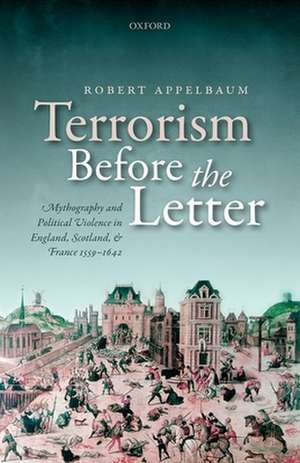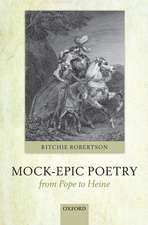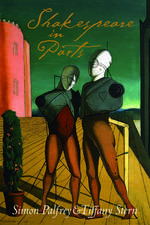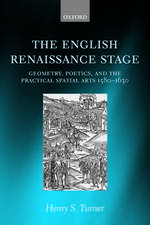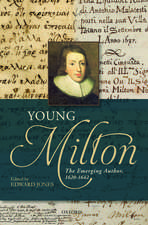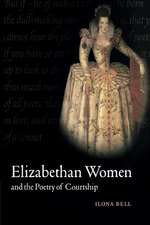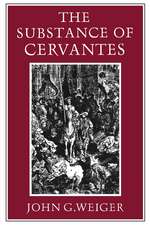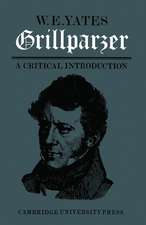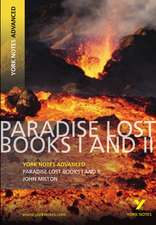Terrorism Before the Letter: Mythography and Political Violence in England, Scotland, and France 1559-1642
Autor Robert Appelbaumen Limba Engleză Hardback – 10 dec 2015
Preț: 657.29 lei
Preț vechi: 943.59 lei
-30% Nou
Puncte Express: 986
Preț estimativ în valută:
125.79€ • 130.84$ • 103.85£
125.79€ • 130.84$ • 103.85£
Carte tipărită la comandă
Livrare economică 04-10 aprilie
Preluare comenzi: 021 569.72.76
Specificații
ISBN-13: 9780198745761
ISBN-10: 0198745761
Pagini: 284
Dimensiuni: 160 x 241 x 21 mm
Greutate: 0.54 kg
Editura: OUP OXFORD
Colecția OUP Oxford
Locul publicării:Oxford, United Kingdom
ISBN-10: 0198745761
Pagini: 284
Dimensiuni: 160 x 241 x 21 mm
Greutate: 0.54 kg
Editura: OUP OXFORD
Colecția OUP Oxford
Locul publicării:Oxford, United Kingdom
Recenzii
This ambitious work has a great deal to offer scholars of early modern history as well as the study of terrorism ... His thesis that there is a nascent 'line of descent' in terrorist violence, from the ancient world, to the early modern, to the modern day, is compelling. It suggests new directions for historians of violence when considering early instances of terror, and convincingly argues for a broader approach to critical terrorism studies.
Terrorism before the Letter carefully recovers the literary history of a so-called mythography of terrorism that Robert Applebaum locates in the bloody religious conflicts of early modern Europe. While boldly considering early modern political violence as terrorism, Applebaum argues that literature must be discussed by scholars of terrorism more broadly ... Terrorism before the Letter offers a timely contribution to terrorist studies.
...the book provides a model of applying present-day ways of thinking about terrorism to the past, while respecting that past on its own terms. The result leads to a number of insights, many of them brilliant, that would bene?t all who are interested in questions of violence and its many representations.
...this is a book to make historians think. His stated goals are to push critical terrorism studies towards a richer engagement with literary analysis, and to provide contemporary debates with a sense of how vested Western culture has been in the imaginary of terrorism (p. 27). But his book deserves to stimulate historiographical debate, not only about violence, terrorism and writing, but also about the possibility of transnational comparative approaches to the darker passages of the European past.
Terrorism before the Letter carefully recovers the literary history of a so-called mythography of terrorism that Robert Applebaum locates in the bloody religious conflicts of early modern Europe. While boldly considering early modern political violence as terrorism, Applebaum argues that literature must be discussed by scholars of terrorism more broadly ... Terrorism before the Letter offers a timely contribution to terrorist studies.
...the book provides a model of applying present-day ways of thinking about terrorism to the past, while respecting that past on its own terms. The result leads to a number of insights, many of them brilliant, that would bene?t all who are interested in questions of violence and its many representations.
...this is a book to make historians think. His stated goals are to push critical terrorism studies towards a richer engagement with literary analysis, and to provide contemporary debates with a sense of how vested Western culture has been in the imaginary of terrorism (p. 27). But his book deserves to stimulate historiographical debate, not only about violence, terrorism and writing, but also about the possibility of transnational comparative approaches to the darker passages of the European past.
Notă biografică
Robert Appelbaum received his BA (Tutorial Studies) from the University of Chicago an his PhD (English) from the University of California, Berkeley. He taught at the University of Cincinnati, the University of San Diego, and the Lancaster University before taking up his current position as Professor of English Literature at Uppsala University, Sweden. He has been a fellow of the Mellon Foundation, the Folger Shakespeare Library, the British Academy, the Leverhulme Foundation, the Arts and Humanities Research Council, and the Stellenbosch Institute for Advanced Study. In 2007 he received the Roland H. Bainton Prize for his study of food, literature and culture in the Renaissance, Aguecheek's Beef.
